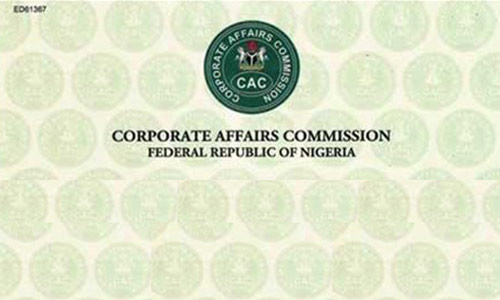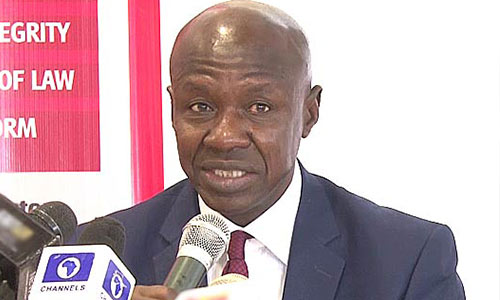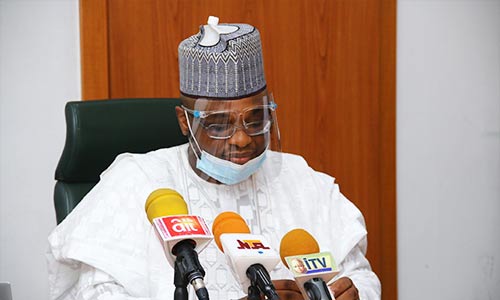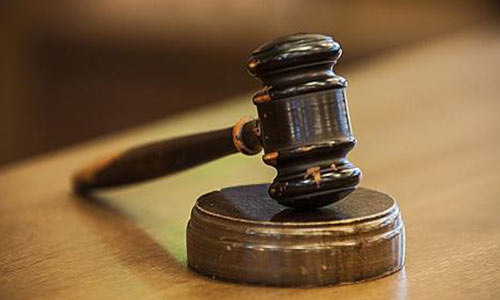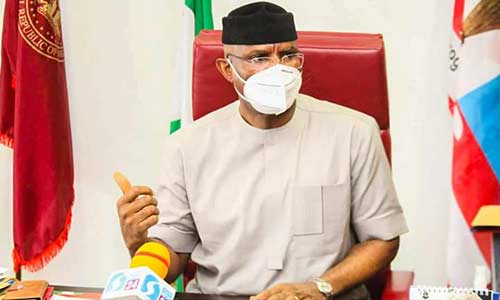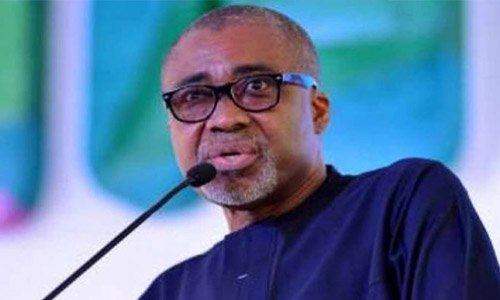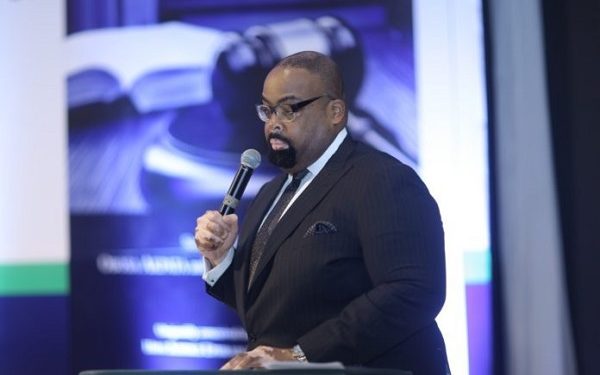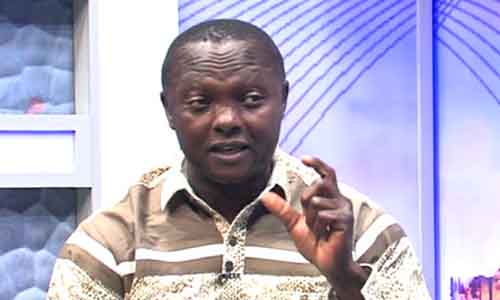Udora Orizu writes that the Company and Allied Matters Act 2020 which was recently assented to by President Muhammadu Buhari has received knocks from NGOs and religious groups who describe it as repressive and ungodly, while calling for an amendment
There has been unease and uproar over the Company and Allied Matters Act which was signed into law by President Muhammadu Buhari on August 7th 2020. The CAMA 2020 which has received commendations from the business community, as it is said to facilitate the ease of doing business in the country, is also faced with backlash from religious, non-governmental and human rights organisations, who are kicking against some sections of the law particularly section 839.
Following concerns on the CAMA 1990 becoming outdated, Buhari in November 2019, wrote to the Senate seeking an amendment for the Act to be repealed or re-enacted. The amendments were aimed at encouraging investments that will allow small businesses and startups thrive, lower costs and ease regulatory burdens. It also provides significant benefits to companies by reducing red tape and making it easier to comply with regulatory obligations.
In the letter read by the Senate President, Ahmad Lawan, at the plenary, he said, ”Pursuant to Section 58 of the Constitution of the Federal Republic of Nigeria 1999 as amended, I hereby forward the Companies and Allied Matters and other related matters Bill 2019 for consideration and passage into law by the Senate. The Senate may wish to note that in this bill, Section 26(5) of the extant companies and Allied Matters Act has been amended to”
”Preserve the powers of the Attorney-General of the Federation to approve the registration of companies limited by guarantee and Reflect the ease of doing business principles in a veto order (1) of 2017 on the promotion of transparency and efficiency in the business environment. While I look forward to the usual expeditious consideration and passage of this bill, please accept the assurances of my highest consideration.”
The Senate, in March 2020 passed the CAMA bill which was sponsored by the Senate leader, Abdullahi Yahaya.
Yahaya had said the bill seeks to provide for the incorporation of companies, limited liability partnerships, limited partnerships, registration of business names together with incorporation of trustees of certain communities, bodies or associations.
He said, ”The Repeal and Re-enactment of the CAMA Bill when passed to law, will have the overall effect of making the Nigerian corporate law more in tuned with today’s business realities, improve the business environment, as well as mitigate direct compliance costs for businesses in Nigeria. It is expected to reduce the minimum share capital for companies and startups in Nigeria. The introduction of e-registration system will ensure global access to registration of companies and Increase in foreign investment through the creation of a new legal entity.”
He added that the necessary amendments have been made as requested by the President. The Senate President, Ahmad Lawan, and many other senators supported its passage.
Following the passage of the Bill by the senate, and the eventual signing into law by President Buhari, it was not a surprise, that he received commendations from various stakeholders in the business community and otherwise. The new CAMA has been described by the stakeholders as Nigeria’s most significant business legislation in three decades.
A civil society organisation, Civil Society Legislative Advocacy Centre (CISLAC) described the CAMA 2020 as a law that will aid the fight against corruption, adding that the law enforcement and anti-corruption agencies had often failed to identify the real owners profiting from strategic Nigerian-registered business entities active in the oil and gas sector, defence, construction and others but with the new law, things would change.
Its Executive Director, Auwal Ibrahim Musa, noted that the absence of the enactment of the CAMA made it impossible to act on establishing a publicly available register of beneficial owners, adding that financing the Nigerian fight against corruption and poverty is sabotaged continuously by financial secrecy, which erodes national sovereignty.
Some business friendly provisions in the new law include; ”Single member and shareholder companies –S.18(2) of the new CAMA now makes it possible to establish a private company with only one (1) member or shareholder.”
”Exemption from appointing Auditors – Small companies or any company having a single shareholder are no longer mandated to appoint auditors at the annual general meeting to audit the financial records of the company. S.402 of the new CAMA provides for the exemption in relation to the audit of accounts in respect of a financial year.”
”Exemption from the appointment of company secretary – The appointment of a Company Secretary is now optional for private companies. According to S. 330 (1) of the new CAMA, the appointment of a company secretary is only mandatory for public companies.”
”Creation of Limited Liability Partnerships (LLPs) and Limited Partnerships (LPs) – The new CAMA introduces the concept of Limited Liability Partnerships (LLPs) and Limited Partnerships (LPs). This combines the organisational flexibility and tax status of a partnership with the limited liability of members of a company.”
”Reduction of Filing Fees for Registration of Charges – Under S. 223 (12) of the new Act, the total fees payable to the CAC for filing has been reduced to 0.35% of the value of the charge. This is expected to lead to up to 65% reduction in the associated cost payable under the regime.”
While the new law is a welcomed development to the business community, it has however been rejected by various Non-governmental and religious groups who believes that the unpopular NGO regulation bill was smuggled into the new law.
The organizations are seeking an amendment to the provisions made in sections 839 (1) & (2) of the law, which empowers the Corporate Affairs Commission to suspend trustees of an association (in this case, the church).
According to the new law, ”Section 839 (1) empowers the Commission to suspend trustees of an association and appoint interim managers to manage the affairs of the association where it reasonably believes that- (a) There is or has been misconduct, mismanagement in the administration of the association.”
”(b) it is necessary or desirable for the purpose of; i. Protecting the property of the association. ii. Securing a proper application for the property of the association towards achieving the objects of the association, the purpose of the association of that property or of the property coming to the association,
iii. Public interest; or (c) the affairs of the association are being run fraudulently.”
Subsection 2 provides as follows: ”1. The trustees shall be suspended by an order of Court upon the petition of the Commission or Members consisting of one-fifth of the association, and the petitioners shall present all reasonable evidence or such evidence as requested by the Court in respect of the petition.”
”Subsection 3 provides for the hearing of the petition and the appointment of the Interim Managers by the Court with the assistance of the Commission. The Interim managers are designated by the Court or the appointment of any person who cannot do as otherwise instructed without the approval of the Court.”
Rejecting the section, the Christian Association of Nigeria (CAN) in a statement on August 20th described the act as unacceptable, ungodly and reprehensible.
The association called on President Buhari to return the law to the National Assembly for amendment and stop the implementation of the law until the religious institutions are exempted from it.
In the statement issued by Special Assistant to CAN President, Pastor Adebayo Oladeji, the association said it is not against the government fighting corruption but it completely rejects the idea of bringing the church, which is technically grouped among the NGOs, under control of the government.
He argued that Nigeria should not be compared with any other nation when it comes to the relationship between the religious institutions and the government.
According to CAN, ”In Nigeria, people’s religions are tied to their humanity and of course, their life adding that the satanic section of the controversial and ungodly law is Section 839 (1) &(2) which empowers the Commission to suspend trustees of an association (in this case, the church) and appoint the interim managers to manage the affairs of the association for some given reasons.”
”The Church cannot be controlled by the government because of its spiritual responsibilities and obligations. We recall that during the First Term of the President, there was a Public Hearing conducted by the National Assembly on the Non- Governmental Organisations Bill tagged ‘Bill for an Act To Provide For The Establishment Of The Non-Governmental Organizations Regulatory Commission For The Supervision, Co-ordination And Monitoring Of Non Governmental Organizations’ which was attended by CAN and many NGOs.”
”At the Public Hearing, the Bill that sought to bring the religious organizations and NGOs under the control and influence of the government was totally rejected because it would snuff life out of the church and rank the church as a secular institution under secular control. We thought it was all over until we heard of the CAMA that was assented to by the President, making the rejected bill a law.”
”How can the government sack the trustee of a church which it contributed no dime to establish? How can a secular and political minister be the final authority on the affairs and management of another institution which is not political? For example, how can a non-Christian head of Government Ministry be the one to determine the running of the church?
”It is an invitation to trouble that the government does not have power to manage. Let the government face the business of providing infrastructure for the people. Let them focus on better health provision, food, education, adequate security employment, etc. The government should not be a busy body in a matter that does not belong to it. The government does not have the technical expertise to run the church of God because of its spiritual nature.”
The Christian body added that if the government insists on imposing the law on the Church, then, they have declared war on Christianity and the agenda to destroy the Church which we have spoken against before now is coming to the open more clearly.
On its part, the Socio-Economic Rights Accountability Project (SERAP) described the signing of CAMA 2020 as illegality and has vowed to challenge it in court.
Also, the General Overseer of the Living Faith Church, Bishop David Oyedepo, said the Federal Government should expunge the part of the Act that gives the supervising minister powers to remove the board of trustees of churches without recourse to the court.
With the ongoing criticisms trailing the new law, there seems to be hope for amendment as the House of Representatives has called on NGOs and religious institutions opposed to the new CAMA to seek an amendment to the law.
In a telephone call with THISDAY, the spokesperson of the House of Representatives, Hon. Benjamin Kalu said those who are not happy with some aspects of the Act should approach the parliament and present their complaints through the proper channels which will be presented before the House and Senate and then considered.
He appealed to Nigerians to always heed to the lawmakers invitations to public hearing and as well monitor any sector they are involved in.
He said, ”Companies Allied Matters Act didn’t not start with this 9th Assembly, it started with the 8th Assembly and it’s been on for about two years, there was enough time for recommendations to be made for the Bill before it became an Act, there was public hearing, the process of law making includes public hearing so there can be an opportunity for interested parties express themselves on what they don’t like about a particular Bill to be considered before its passage and no law is a perfect law neither are they cast on stones, there’s always a provision in the constitution for amendment of laws made by the parliament therefore if the people the law is made for have any complaints, though they were supposed to be vigilante enough to raise it at the appropriate time but it’s better late than never.”
”So the opportunity that the constitution has allowed for those who are not happy with a piece of legislation is to come via way of amendment to the law. I’m aware that a lot professionals are happy with most provisions of the CAMA bill, but there are some who considered few provisions offensive and against their expectations, there’s still an allowance for amendment to be made to it, all they have to do is to present it through the proper channels and that will be presented before the House and Senate and be considered.”
”We have amended so many laws in Nigeria this will not be first or last. All the non governmental agencies should have legal departments to know what to do and approach their various representatives to make a presentation before the House on the areas they are not happy with then go by way of amendment to the Act. So this should not cause a problem in the society at the moment. They should make use of the available opportunity created by the constitution to amend any legislation that they are not happy. However it’s important that people are vigilant, monitoring what is happening in a particular sector they are involved in.”
”This is why I always urge Nigerians to accept our invitations when we call for public hearing. Attitude of Nigerians to public hearing has always been i’t’s their business’ and then when you are indolent and something happens you now run to equity and equity says it aides the vigilante not the indolent, the message to Nigerians is that whenever there’s public hearing please be interested and make use of it to advocate your concerns.”
QUOTE
Subsection 3 provides for the hearing of the petition and the appointment of the Interim Managers by the Court with the assistance of the Commission. The Interim managers are designated by the Court or the appointment of any person who cannot do as otherwise instructed without the approval of the Court. Rejecting the section, the Christian Association of Nigeria (CAN) in a statement on August 20th described the act as unacceptable, ungodly and reprehensible. The association called on President Buhari to return the law to the National Assembly for amendment and stop the implementation of the law until the religious institutions are exempted from it
Written by Udora Orizu

